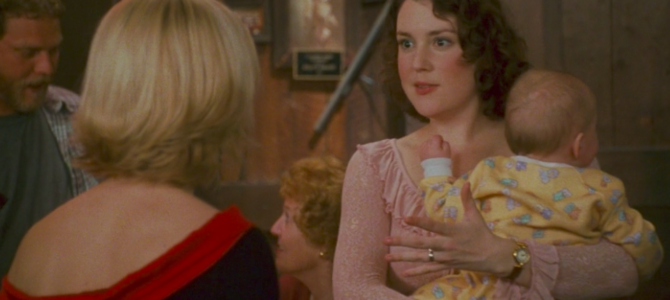
The Instagram account of my imaginary bestie Reese Witherspoon informed me this week is the 15th anniversary of the release of the movie “Sweet Home Alabama.”
In this classic rom-com romp, Southern belle turned Manhattanite fashionista Melanie Carmichael (Witherspoon) has it all. She’s just debuted a buzzy fashion line burdened with early-2000s trends to much acclaim. She has a fabulous gay mentor, a cosmopolitan girlfriend with a British accent, and is about to get engaged to a dashing political scion of New York City played by Patrick Dempsey.
There’s just one small problem. She’s still technically married to her childhood sweetheart, Jake (Josh Lucas), and the city mouse must go back to the country in her black turtlenecks and Jimmy Choos to get a divorce. Along the way, we find culture clashes, hilarity, and and maybe, just maybe, a third-act plot twist, an unrealistically magnanimous jilted lover, and the true meaning of love. Spoiler alert.
The film is rated a pretty dismal 38 percent by Rotten Tomatoes, but I revisited it with a glass of wine, as my chromosomes would have me do, and Witherspoon’s charm is as usual more than enough to make the film worth watching. But this 2002 film has a lesson that will resound forever, and it has nothing to do with Jake and Melanie, or even Dempsey’s enduring hotness.
It is this. Live your life like Lurlynn.
Lurlynn, played by Melanie Lynskey, is a friend of Witherspoon’s character’s from high school. We are introduced to her as Melanie struts into the local honky tonk wearing her own designer duds, and Lurlynn greets her effusively.
“Oh my God! Look at you, all fancy! You look like you just stepped out of a magazine.”
Melanie replies, “Look at you! You have a baby…in a bar.”
That’s the famous line, but I had forgotten the one after it, which is a veritable life philosophy for motherhood. Lurlynn, who is nonchalantly toting an infant during the preceding conversation, smiles unabashed and declares, “Hell, I got three more at home! This one’s still on the tit, so I can cart him anywhere.”
Yes, girl, yes. When they are still on the tit, you can indeed cart them anywhere. And you should!
There are a couple commendable things going on, here. This is not just a baby in a bar. A baby in a bar is also a mom living her life, out with friends, while taking care of a baby. She needs the semi-me time, babies like the white noise, and when they’re little no one can hear them fuss, or even see them if you’re baby-wearing.
This baby in a bar is an endorsement of breastfeeding without shaming any other forms of feeding babies. He’s breastfeeding, so she’s got him at the bar. There is an appreciation of her situation, but no suggestion she would begrudge a formula-feeding mother her choices. She’d probably hang out with her at the bar. And, most importantly, Lurlynn exhibits not a hint of shame or second-guessing for the decision she has made to have her breastfeeding baby with her in this establishment. She knows who she is.
I cannot tell you how many young-mom friends of mine have referenced this scene as we talk about our adventures juggling life, friends, work, and family. Often, their maiden voyages outside the house with the baby are a boozy brunch with friends or a Thursday happy hour with a teensy newborn strapped to their chests. Whether they imbibe or not, the experience is a mark of a return to some normalcy and a declaration that they can, indeed, manage several different things at once in this new phase of life.
In that moment in the film, it’s unclear whether “Sweet Home Alabama” wants us to see Lurlynn as a positive character, which is one of the things I appreciate about the movie. Although it has its share of tropes about urban versus rural life, it allows many of its citified Yankees and gun-totin’ Southerners to be something beyond a cartoon.
Witherspoon’s character is mildly taken aback by Lurlynn’s kid and lack of sophistication, but not appalled or rude. Lurlynn is profane and provincial, but well-meaning. Melanie later lashes out at her old friends while drunk, denigrating their lifestyle. Despite Melanie’s condescending attack, it is Lurlynn who hands off her baby to her husband— successful co-parenting!—and gathers Melanie’s purse and belongings for her.
Later in the movie, we see Lurlynn at the local Catfish Festival, again calmly parenting, this time several kids, when Melanie arrives to atone for what she said at the bar. Lurlynn looks angry, but is quick to genuinely forgive—another indication she’s not insecure about her life choices. Lurlynn quickly shushes her children, “Okay, y’all, you need to eat and be quiet. We’re gonna have us a little visit.”
The two talk about life and ambition and the broken marriage of Melanie and Jake, with Lurlynn sadly concluding while snuggling her own baby, “It’s funny how things don’t work out.”
Melanie looks at Lurlynn and her family admiringly and says, “It’s funny how they do.”
It’s a really nice moment, far from the cartoonish Mommy Wars dichotomy so often portrayed in movies. Later that night, we see Lurlynn dancing with her husband, Clint, with whom she seems to have a warm, comfortable relationship.
The first time I watched this movie, I was supposed to identify with the glamorous, career-driven, childless lead chasing love. And I did. Her Southern roots didn’t hurt, either. Now, I’m Team Lurlynn, and I will be every time I unabashedly take my baby to a bar or invite my new-mom friends out to do the same. After all, when they’re on the tit, you can cart them anywhere.









